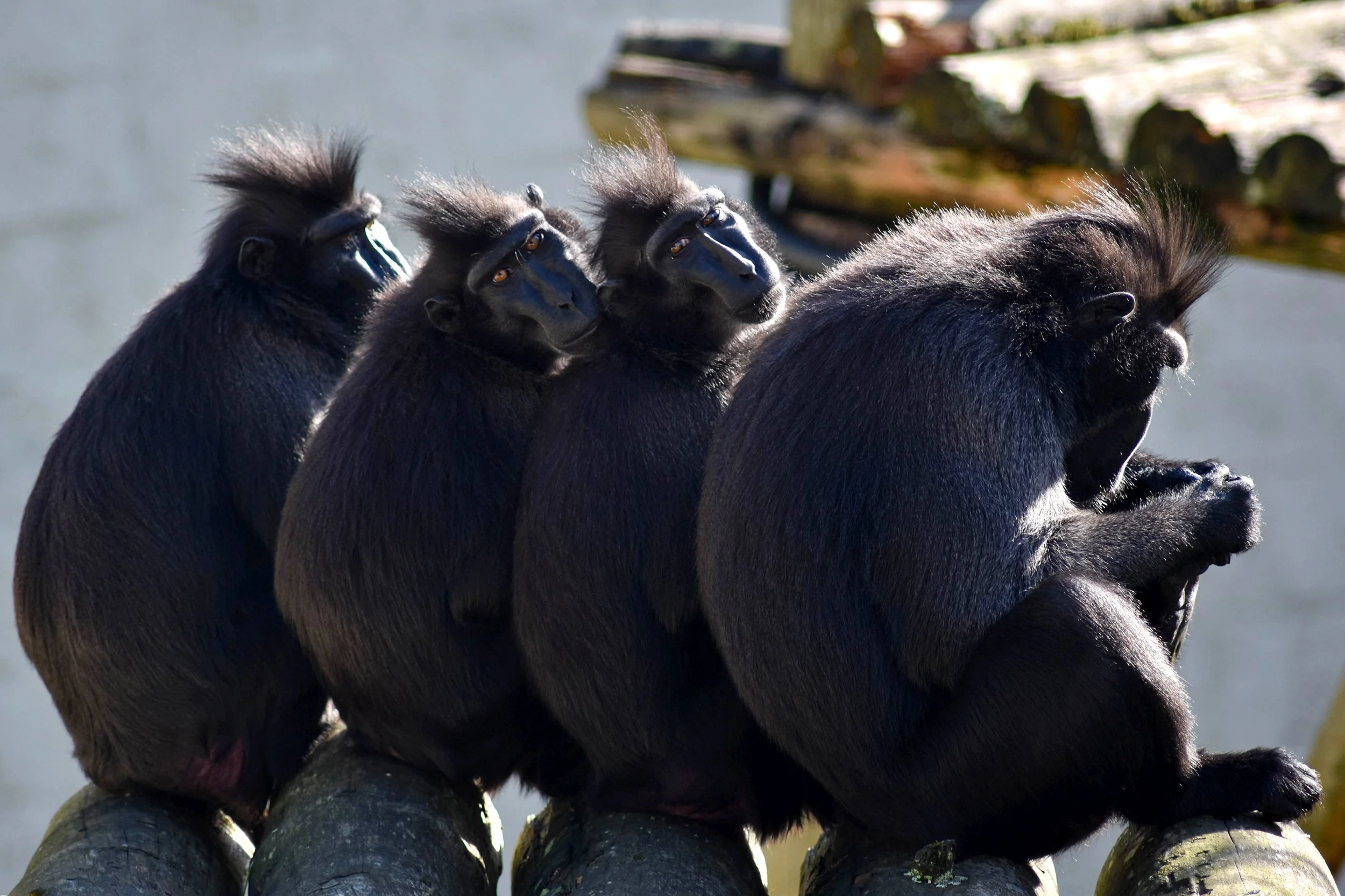Primates in Peril
The distinctive Crested Black Macaques of Sulawesi, easily recognisable by their tufted mohawk, find themselves faced with an uncertain future. With their numbers dwindling the work of conservation projects to protect them is more important than ever.
Deep in the tropical forests of northern Sulawesi a fight for survival is taking place. In this region, now recognised as a global biodiversity hotspot, many species of flora and fauna have evolved to become unique to this area. This therefore brings difficulties when the habitat becomes threatened. Many species are finding themselves vulnerable but Sulawesi Crested Black Macaques, or known as Yaki in Indonesian, are the most endangered Macaque in Sulawesi. With an estimate of only 5000 left in the wild they are currently listed red on the IUCN list of threatened species as well as being in the top 25 most endangered primate list.
First encountering these intriguing animals on a visit to Newquay Zoo was a remarkable moment. Their bright, pink bottoms and tufty mohawks are their most striking features instantly noticeable on approach towards the enclosure. Watching the macaques displaying their natural social behaviour, interacting with each other vocally, grooming and moving around eating together was fasinacting. With numbers of the Sulawesi Crested Black Macaques in the wild having fallen so dramatically the programmes being run by zoos around the world to keep a robust and genetically diverse population in captivity are ever more important. Wild Planet Trust, a registered conservation charity based in Devon, own two zoos in the South West, Paignton and Newquay. They also help with work to protect the macaques in their native country too.
The work to save the Crested Black Macaques is vitally important. Only found in Sulawesi they are a valuable part of the extremely fragile biodiverse ecosystem. Although opinions about zoos are considerably varied, with some people strongly opposed to them because they disagree entirely with wild animals being kept in captivity, the breeding programmes run by these institutions do have a big part to play in the preservation of endangered species. Careful records are kept of all the zoo’s populations of each species. By doing this they can ensure healthy ongoing generations throughout the zoos. Alongside this their education programmes and the funding and experience they contribute to overseas conservation work are significant in improving knowledge and conserving the species home environment. Projects run by conservation charities in the Crested Black Macaques homeland of Sulawesi and internationally, including in the UK by Wild Planet Trust, Newquay and Paignton Zoos are therefore of the upmost importance to ensure these beautiful and iconic animals can continue to survive and flourish through new generations.







